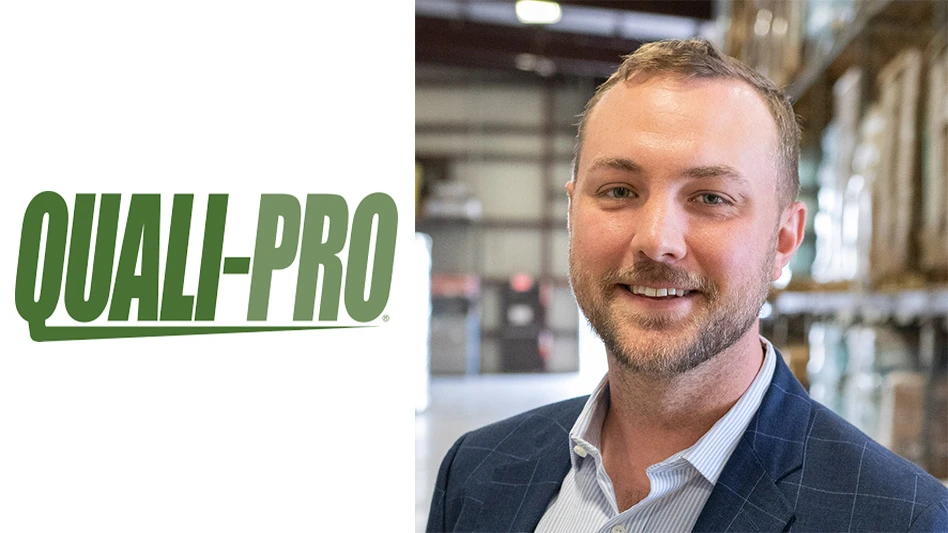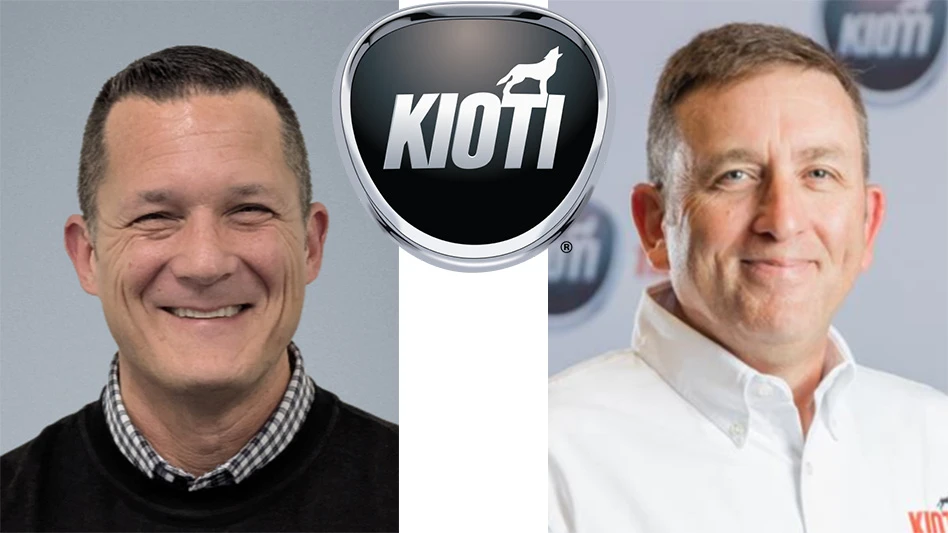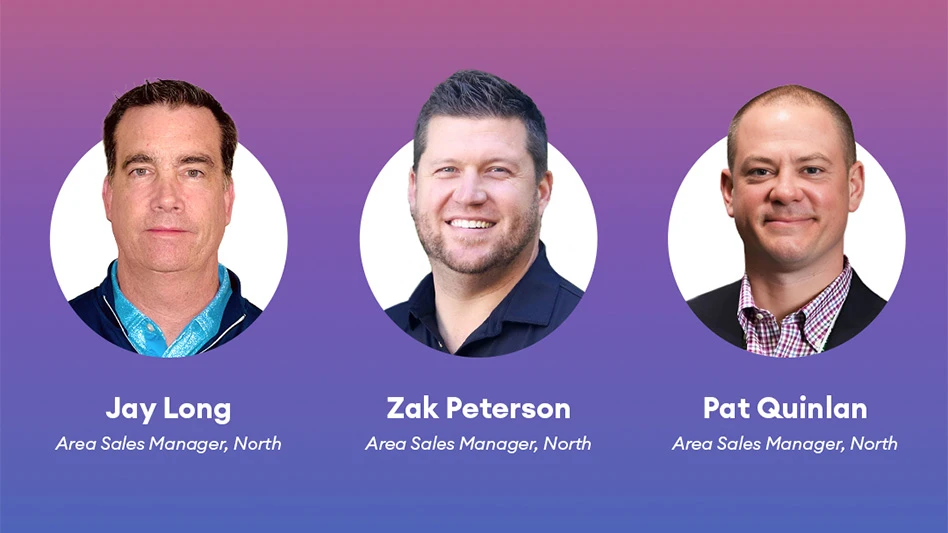It doesn’t matter if you own or manage a private or public facility, the secret to marketing success is hiring and training a qualified and dedicated salesperson. The secret isn’t a marketing service that you contract for $500 a month or software you buy for $3,000. Dedicated sales is the key to a healthy golf course and industry.
I’ll bet if I went back through my all my GCI columns, I have mentioned sales or alluded to sales in almost every one. Every year I receive more calls from superintendents, golf professionals, general managers and owners asking marketing questions. How do you start a marketing plan? What are the most important elements of a marketing plan? How do you monitor the plan? How do you determine the priorities of a marketing plan? How do you know if a plan is successful? These questions, and their frequency, lead me to believe the industry is becoming more progressive and sophisticated.
Many owners realize they have to do something different to compete in the current oversupplied market. You have to compete successfully, or you won’t be in the golf course ownership business long. I use the term dedicated sales effort because each staff member has a full-time job. Putting a part-time effort into generating the incremental revenue you need isn’t going to get you where you want to be.
Sales is an investment. If you can afford to make the initial investment, a salesperson should be able to pay for himself relatively quickly. Then he can begin to return three, four, even five times his total cost of sales (base salary, commissions, benefits) to your bottom line.
Realize sales is a unique skill. Not everyone is suited for it. I guarantee you won’t be able to just pick someone you like or know and put them into a sales position and watch him flourish. If you’re going to make this initial investment, be sure your choices are qualified and hungry for a sales position. Most of my best hires come from “intangible” sales backgrounds: hospitality, insurance, financial, etc. They’re service salespeople, not car salespeople. If trained properly, they assure your prospects they’ll be personally responsible for their experience at the club, not just sell them memberships or outings.
The most important step in hiring salespeople is qualifying them as service sales-oriented. This is accomplished by classified advertising to determine what sales talent is available, followed by interviews and aptitude testing to determine if they’re predisposed to sales.
The next most important step is organizing their efforts to generate the most revenue possible. I’ve never liked the term job description, so I call my written organizational plan “daily sales tasks and objectives.” Here’s what’s included in such a plan to organize the efforts of your salespeople:
Standard work week. Typically, I include the standard work week Monday through Friday, 8:30 a.m. to 5:00 p.m. The reality is a salesperson is on call when a prospect needs him. If your chosen salesperson wants his work hours defined specifically, choose a different salesperson.
Prospecting expectations. I start salespeople off with all priority sales lists and require 20 new contacts – not calls, contacts – per day. Once they begin following up with prospects, this daily new contacts number will be adjusted based on response.
Priority sales calls and contacts. A prospect walking in your door desiring information about membership or an outing, for example, will always be your first priority. Start there, and fill out the list: promised follow-up calls, new contacts, etc.
Record-keeping and reporting. Set up a system of daily, weekly and monthly call reports and a summary of sales efforts compared to previously set goals.
Sales paperwork. These include contracts, proposals (taxable and tax-exempt), client-needs forms for operations and food and beverage, thank-you letters and follow-up service surveys.
Weekly sales information meeting. This sounds easy, but it will be one of your greatest challenges. Pick a day and time for all department heads to meet weekly for a review of all contracted events planned for the upcoming two weeks. If clients’ needs and expectations are reviewed with all departments well in advance, there can be no mistakes, right?
Ideal time to hire a salesperson. Thanksgiving. During the holidays (Thanksgiving through New Years), the sales cycle is low. This is the time to set your marketing and sales goals for the next year. From Jan. 2 through Easter, my expectations are that a minimum of two-thirds of all sales goals (contracts signed and filed) will be accomplished.
The golf business has changed. Are you changing, or are you staying the same and toughing it out?
I’ll bet if I went back through my all my GCI columns, I have mentioned sales or alluded to sales in almost every one. Every year I receive more calls from superintendents, golf professionals, general managers and owners asking marketing questions. How do you start a marketing plan? What are the most important elements of a marketing plan? How do you monitor the plan? How do you determine the priorities of a marketing plan? How do you know if a plan is successful? These questions, and their frequency, lead me to believe the industry is becoming more progressive and sophisticated.
Many owners realize they have to do something different to compete in the current oversupplied market. You have to compete successfully, or you won’t be in the golf course ownership business long. I use the term dedicated sales effort because each staff member has a full-time job. Putting a part-time effort into generating the incremental revenue you need isn’t going to get you where you want to be.
Sales is an investment. If you can afford to make the initial investment, a salesperson should be able to pay for himself relatively quickly. Then he can begin to return three, four, even five times his total cost of sales (base salary, commissions, benefits) to your bottom line.
Realize sales is a unique skill. Not everyone is suited for it. I guarantee you won’t be able to just pick someone you like or know and put them into a sales position and watch him flourish. If you’re going to make this initial investment, be sure your choices are qualified and hungry for a sales position. Most of my best hires come from “intangible” sales backgrounds: hospitality, insurance, financial, etc. They’re service salespeople, not car salespeople. If trained properly, they assure your prospects they’ll be personally responsible for their experience at the club, not just sell them memberships or outings.
The most important step in hiring salespeople is qualifying them as service sales-oriented. This is accomplished by classified advertising to determine what sales talent is available, followed by interviews and aptitude testing to determine if they’re predisposed to sales.
The next most important step is organizing their efforts to generate the most revenue possible. I’ve never liked the term job description, so I call my written organizational plan “daily sales tasks and objectives.” Here’s what’s included in such a plan to organize the efforts of your salespeople:
Standard work week. Typically, I include the standard work week Monday through Friday, 8:30 a.m. to 5:00 p.m. The reality is a salesperson is on call when a prospect needs him. If your chosen salesperson wants his work hours defined specifically, choose a different salesperson.
Prospecting expectations. I start salespeople off with all priority sales lists and require 20 new contacts – not calls, contacts – per day. Once they begin following up with prospects, this daily new contacts number will be adjusted based on response.
Priority sales calls and contacts. A prospect walking in your door desiring information about membership or an outing, for example, will always be your first priority. Start there, and fill out the list: promised follow-up calls, new contacts, etc.
Record-keeping and reporting. Set up a system of daily, weekly and monthly call reports and a summary of sales efforts compared to previously set goals.
Sales paperwork. These include contracts, proposals (taxable and tax-exempt), client-needs forms for operations and food and beverage, thank-you letters and follow-up service surveys.
Weekly sales information meeting. This sounds easy, but it will be one of your greatest challenges. Pick a day and time for all department heads to meet weekly for a review of all contracted events planned for the upcoming two weeks. If clients’ needs and expectations are reviewed with all departments well in advance, there can be no mistakes, right?
Ideal time to hire a salesperson. Thanksgiving. During the holidays (Thanksgiving through New Years), the sales cycle is low. This is the time to set your marketing and sales goals for the next year. From Jan. 2 through Easter, my expectations are that a minimum of two-thirds of all sales goals (contracts signed and filed) will be accomplished.
The golf business has changed. Are you changing, or are you staying the same and toughing it out?

Explore the October 2008 Issue
Check out more from this issue and find your next story to read.
Latest from Golf Course Industry
- Smart Greens Episode 1: Welcome to the digital agronomy era
- PBI-Gordon promotes Jeff Marvin
- USGA investing $1 million into Western Pennsylvania public golf
- KemperSports taps new strategy EVP
- Audubon International marks Earth Day in growth mode
- Editor’s notebook: Do your part
- Greens with Envy 66: A Southern spring road trip
- GCSAA’s Rounds 4 Research auction begins





